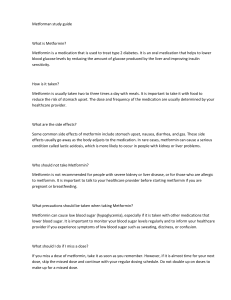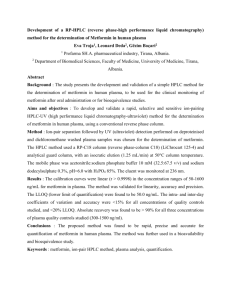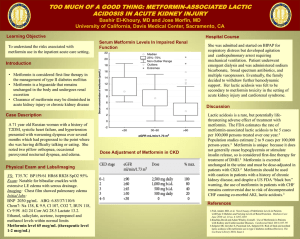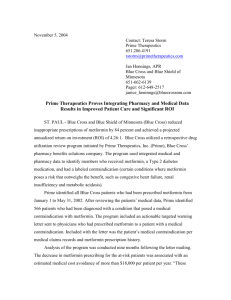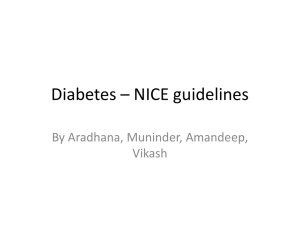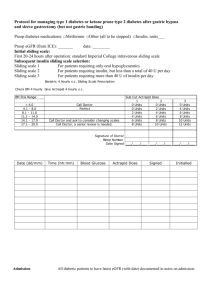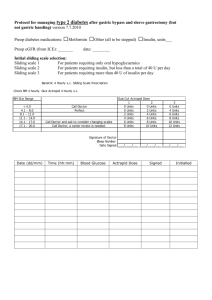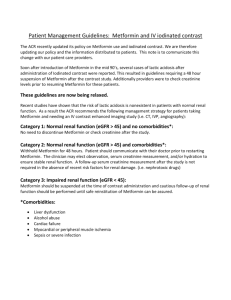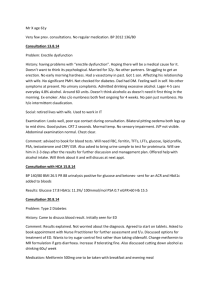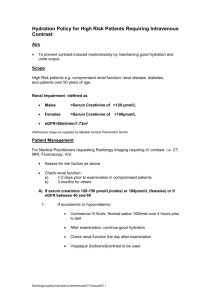Metformin - PSNC.org.uk
advertisement
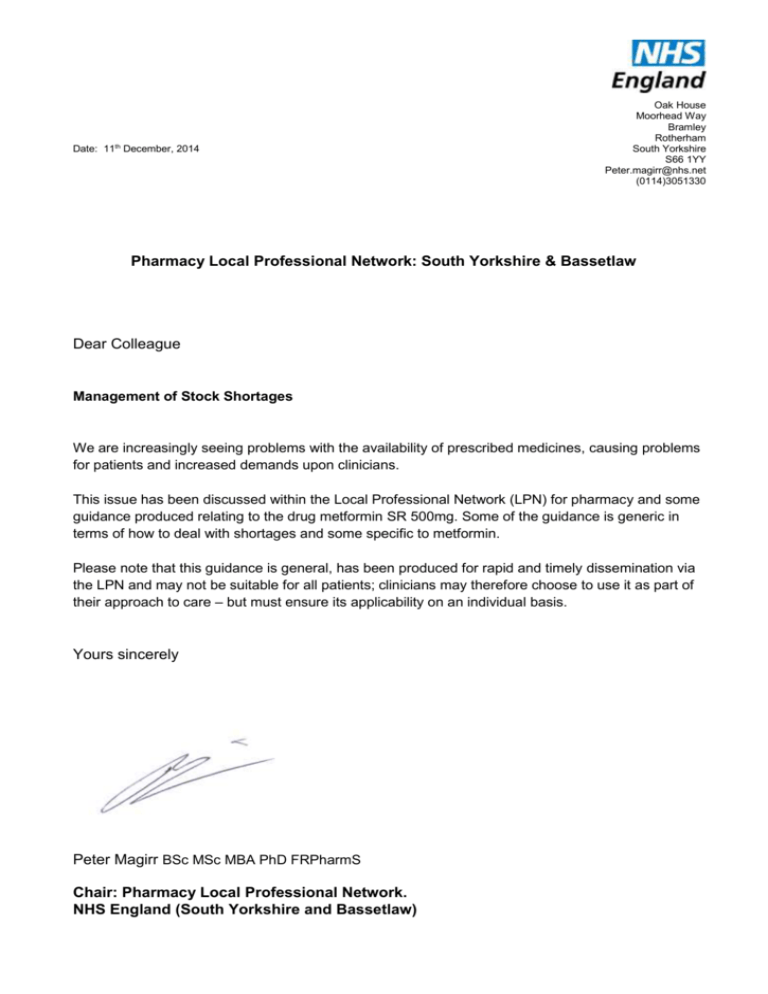
Date: 11th December, 2014 Oak House Moorhead Way Bramley Rotherham South Yorkshire S66 1YY Peter.magirr@nhs.net (0114)3051330 Pharmacy Local Professional Network: South Yorkshire & Bassetlaw Dear Colleague Management of Stock Shortages We are increasingly seeing problems with the availability of prescribed medicines, causing problems for patients and increased demands upon clinicians. This issue has been discussed within the Local Professional Network (LPN) for pharmacy and some guidance produced relating to the drug metformin SR 500mg. Some of the guidance is generic in terms of how to deal with shortages and some specific to metformin. Please note that this guidance is general, has been produced for rapid and timely dissemination via the LPN and may not be suitable for all patients; clinicians may therefore choose to use it as part of their approach to care – but must ensure its applicability on an individual basis. Yours sincerely Peter Magirr BSc MSc MBA PhD FRPharmS Chair: Pharmacy Local Professional Network. NHS England (South Yorkshire and Bassetlaw) Community Pharmacy Management of Stock Shortages Metformin SR 500mg Tablets There are currently supply problems with the slow release preparation of metformin 500mg tablets, which will potentially remain unresolved in the near term. This guidance is intended to help community pharmacy manage the situation to alleviate any problems for patients and give advice to prescribers. General Principles of Stock Shortage Management Take an active role in managing patients when stock shortages arise. It is not acceptable to instruct a patient to try another pharmacy or refer them back to a surgery without contacting that establishment first and agreeing a solution Gather all the information you need before making any decisions. o How long is the shortage likely to last? o Does the patient have a supply and how long will it last? o Do any other local pharmacies have supplies? o What are the suitable alternatives available? o Are there any clinical and patient factors that may affect the use of alternatives? Clinical Aspects of Metformin Therapy Metformin is the only available and has a unique mode of action that is different to other hypoglycaemic agents. It works mainly by decreasing gluconeogenesis and by increasing peripheral utilization of glucose. Metformin is only effective if there are some residual functioning pancreatic islet cells and only has a glucose lowering effect in the presence of insulin. The dose usually starts at 500mg OD and is gradually increased over a number of weeks up to 2g daily, according to response. Doses above 2g are licensed for the normal release preparation, but are rarely tolerated and do not usually bring additional benefit Side Effects About 5% patients will not be able to tolerate metformin and will cease therapy as a result. The usual intolerance is gastrointestinal, which can be minimized by starting at low dose and titrating slowly. The effects are usually transient and will improve if the patient can persist with treatment. There is some weak evidence that the slow release preparations are better tolerated than the normal release. Lactic acidosis is a rare condition that can occur, but is usually associated with other medical factors. NICE recommends that patients with renal impairment and an eGFR of < 45 ml/min/1.73m2 are treated with caution at reduced doses and that metformin is avoided in all patients with an eGFR < 30 ml/min/1.73m2. Conditions that increase the risk of tissue hypoxia e.g. recent myocardial infarction, sepsis, hypotension, severe hepatic impairment, can also increase the risk and so metformin should be used with caution Hypoglycaemia is not usually an issue with metformin when used as monotherapy, as it does not affect the secretion of insulin, which it requires to work. However caution should be shown where other hypoglycaemic agents are being used. Possible Strategies Once need and lack of availability of Metformin SR 500mg Tablets is established possible solutions could be: Change to normal release Metformin 500mg Tablets. This could potentially lead to a greater incidence of gastrointestinal upset, but since the patient is already established on the drug, tolerance may have developed. Taking the medicine with food and giving reassurance that problems will ease, may help the situation. It is also worth remembering that not all patients may have tried the normal release in the first instance. Make sure the patient is counseled on how to take the new product as it is often given as a split dose, whereas the slow release is once daily Use the slow release 750mg and 1000mg strengths to make up to an equivalent daily dose, or as close as possible. Patients who tolerate the drug well and are on monotherapy could generally tolerate an increase in dose, if this is necessary. Caution would need to be shown in patients with renal impairment, co-morbidities increasing the chance of hypoxia and where other hypoglycaemic agents are being used. In the latter patient group, enquire if hypoglycaemic episodes have been an issue. Where problems exist, tend to recommend a rounding down of total daily dose, where possible. The slow release preparation is sometimes given as a split dose in an attempt to gain better glycaemic control. Try to maintain a split where possible. Where the above strategies have failed, suggesting that diet alone should be used to control the condition may be appropriate for patients who are just above target, for a short period of time Suggesting alternative agents should only be used where stock shortages are long term, other strategies have failed and glucose control is paramount. This will require attendance at a diabetes clinic and so should only be a last resort
